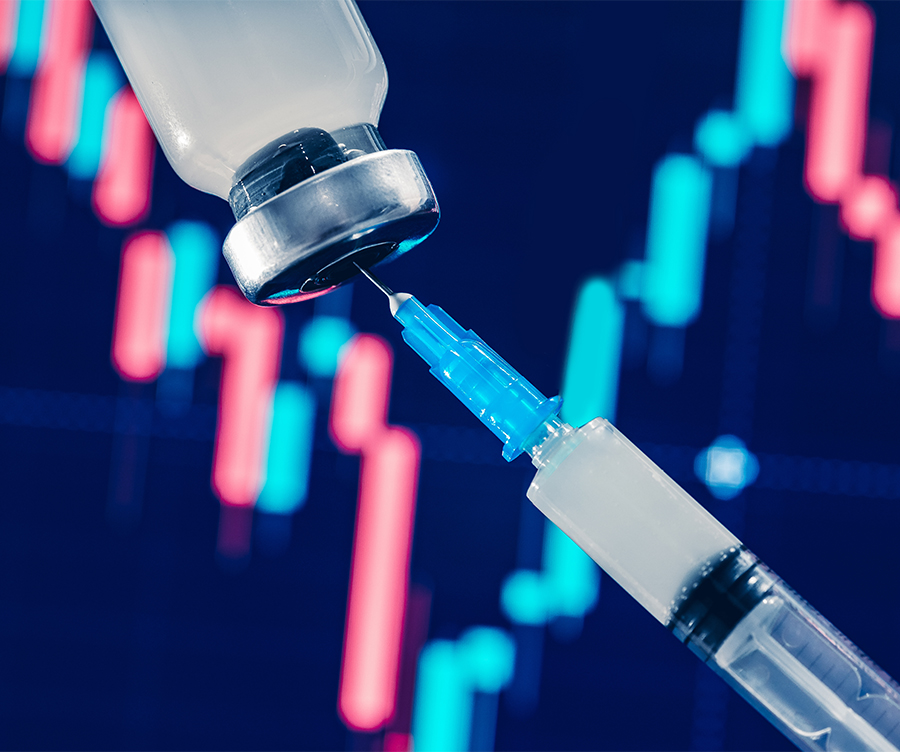Deutsche Bank is predicting that trade finance activity will return to pre-crisis levels by the middle of 2021, as optimism over a vaccine for Covid-19 prompts improved forecasts for trade volumes next year.
Daniel Schmand, Deutsche Bank’s head of trade finance and lending, says the bank now expects trade finance to be “one of the winners in a post-Covid-19 environment”, forecasting a rebound of more than 7% over the course of 2021.
“Since the news that a Covid-19 vaccine might be broadly available in the New Year, our global trade finance outlook has improved,” Schmand says in a press statement issued by the bank in late November.
“We expect trade finance activity to return to pre-crisis levels around the middle of next year. Given the broad correlation of global trade and GDP growth, this is very encouraging.”
The bank says its 7% growth forecast is based on World Trade Organization (WTO) predictions that the volume of worldwide goods trade will increase by a similar amount next year, after an estimated 9.2% drop during 2020.
In its latest Goods Trade Barometer, published last month, the WTO reports a “dramatic improvement” in trade volumes compared to the second quarter of this year.
At that time, with lockdown measures and travel restrictions causing trade activity to plummet, the WTO warned that the pandemic risked causing a fresh financial crisis affecting all regions in the world and all sectors of the economy.
One “positive note” is the November 9 announcement by Pfizer and BioNTech that trials of its Covid-19 vaccine showed it was more than 90% effective in preventing infection.
Other signs of recovery are shown by a “surge” in export orders and purchases of agricultural raw materials, both of which are “firmly above trend”.
Container shipping and automotive products have also shown strong recoveries, though air freight and electronic components remain below trend.
However, the WTO says trade-related uncertainty remains high, as a second wave of infections sweeps across Europe and North America. In terms of a vaccine, it adds that information on “when and how it might be deployed is not yet known”.
The revised forecasts come as the UK government becomes the first western country to authorise distribution of the Pfizer/BioNTech vaccine domestically.
The Department of Health and Social Care announced on December 2 that following a recommendation from independent medicines regulators and “months of rigorous clinical trials”, the roll-out of vaccinations would begin as soon as next week.
Priority groups, including clinically vulnerable people, care home residents and frontline health workers, are set to receive the vaccine first, the government adds.
Health secretary Matt Hancock told reporters that around 800,000 doses would be available from next week.
In terms of wider vaccine rollouts, the WTO has urged governments to look at potential barriers, including export, import and transit controls that may “hamper the sourcing of… raw materials, components and other inputs needed to manufacture Covid-19 vaccines”.
One potential issue has been around WTO rules on intellectual property, which currently mean countries must obtain licences from pharmaceutical companies in order to manufacture supplies themselves.
Calls to relax those rules, led by the governments of India and South Africa and backed by leading academics, are expected to be discussed by WTO officials this month, including a general council gathering on December 16-17.
However, according to notes from a council meeting in late November, those proposals are being resisted by developed countries such as the US, Japan and Switzerland, as well as the European Union.







